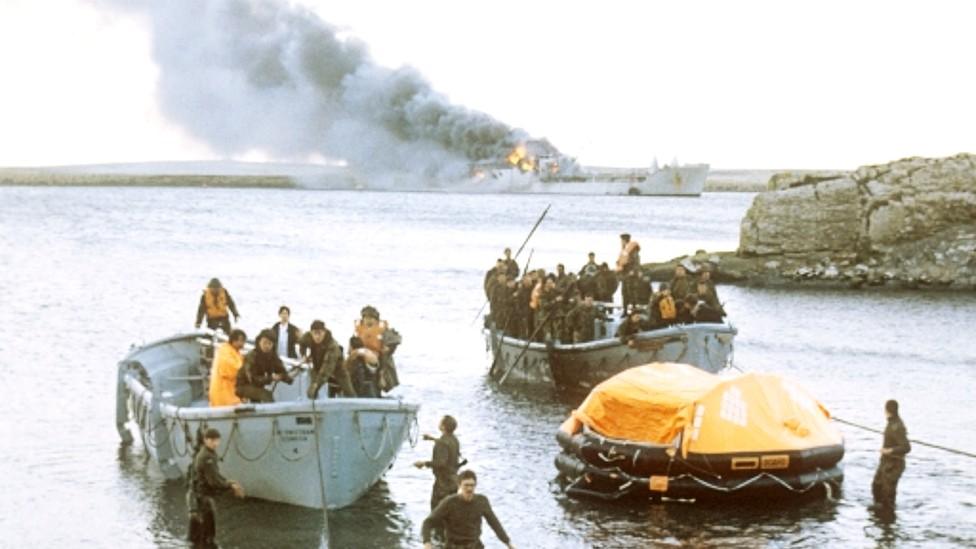Falklands War: Welsh soldier thanks nurse who helped save his life
- Published
The "extraordinary and very special reunion" between injured soldier and nurse who treated him
"I distinctly remember those clear blue eyes, gleaming through. It was such a comfort because you knew those eyes were caring eyes."
When paratrooper Denzil Connick was critically injured during the Falklands War, many thought he would not survive.
But he was saved by a team of medics aboard the hospital ship.
Forty years on, Mr Connick has been reunited with the nurse with the "caring eyes" who helped bring him back from the brink of death.
As they meet at the Falklands Memorial Chapel, near Reading, Mr Connick and Nicci Pugh embrace like old friends and take a moment to reflect on the events which entwined their lives forever four decades ago.
"I'm ever grateful," said Mr Connick, from Blackwood, near Caerphilly, who was just 26 when he was critically injured. "What our medics did was just phenomenal."
A Senior Nursing Officer in Queen Alexandra's Royal Naval Nursing Service, Nicci Pugh, from Devon, was one of only 40 women in the combat zone in the Falklands War.
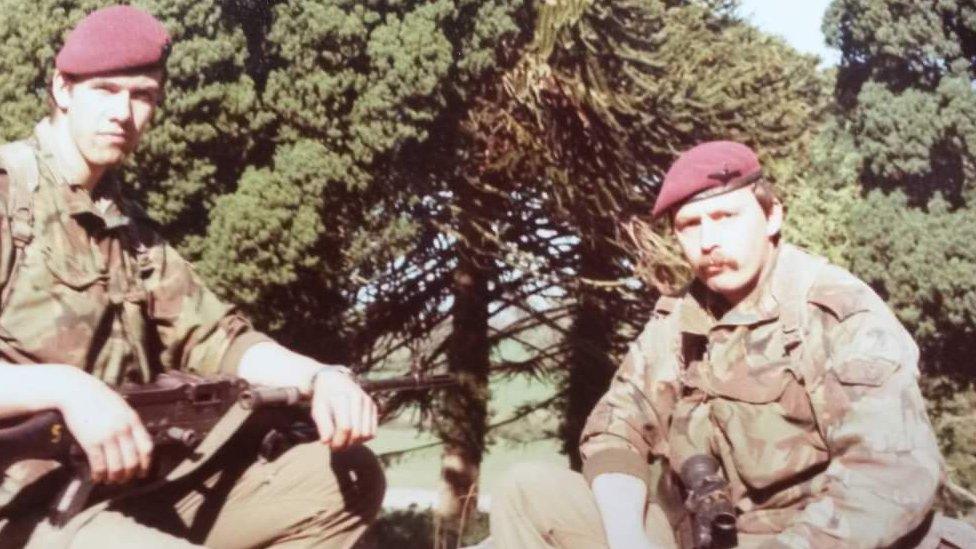
Denzil Connick (right) was deployed as a radio operator when he was critically injured the day before the end of the conflict
The 10-week war, which would claim the lives of more than 900 military personnel and civilians, was coming to an end in 1982 when the Lance Corporal in the 3rd Battalion, was engaged in some of the fiercest fighting at the Battle of Mount Longdon.
"We were told, in no uncertain terms, that some of us wouldn't be coming back from that," Mr Connick remembered.
"That was quite a hard thing to think about."
He described some of the fighting as "medieval" with the use of bayonets at close-quarters, and remembers how he could "smell death" the morning after 12 hours of fighting.
"It was kind of a mist floating over the ground as well, and the stillness and the quiet after the noise and the bedlam of battle," he said.
"There are corpses of your enemy, the corpses of your friends just lying there in the stiffened positions, which didn't seem real. I don't think any one of us had seen such a thing.
"That scene of horror will never, never leave my mind. It was just terrible."
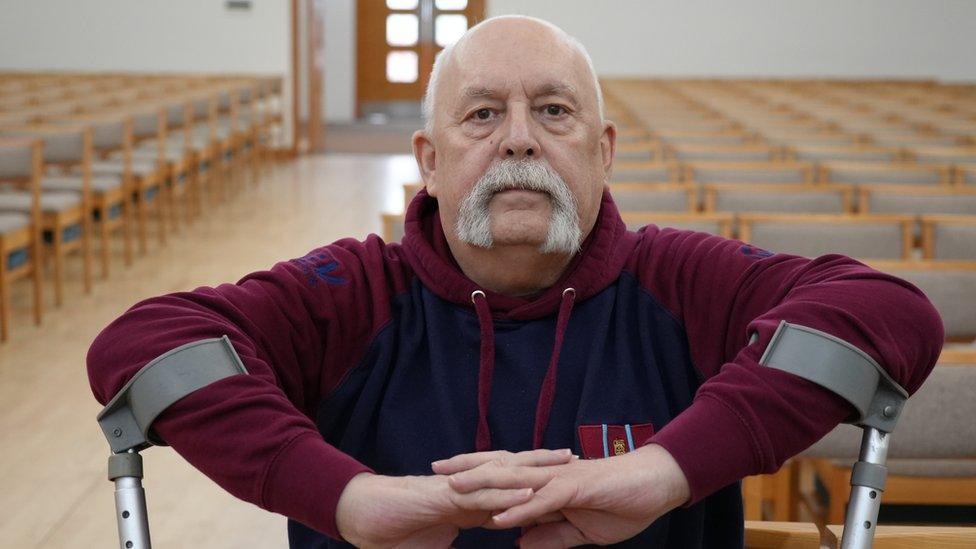
Mr Connick said the nurses helped him as he learnt the extent of his injuries
The day after that battle, Mr Connick and two of his fellow soldiers were on "an errand" when they were hit by what he believes was a mortar shell.
"The two of them died of their wounds at the regimental aid post right next to me. I was actually put to one side as a 'no-hoper'," he said.
He was flown to a field hospital as the sole survivor and remembers his thoughts during the flight.
"I thought, 'No, I'm not going to let death take control of this'. And I hung on, hung on, hung on."
On arriving at the field hospital, he momentarily died, but was resuscitated and the next day was sent to the hospital ship, SS Uganda.
"My wounds were catastrophic. Traumatic amputation of my left leg, the leg that remains was just shredded," he said.
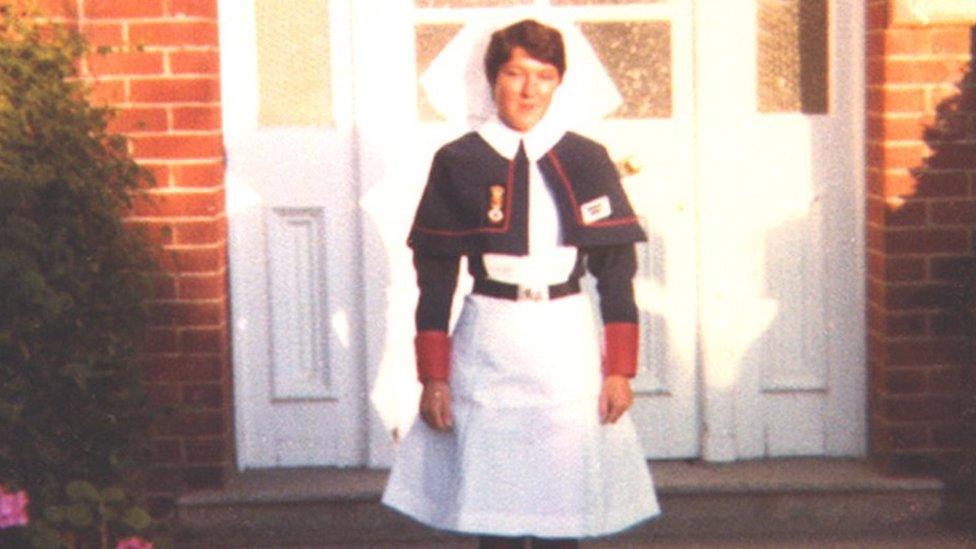
Nicci Pugh said all wars had a legacy of "senseless and pointless" destruction
Ms Pugh had been treating soldiers on the SS Uganda, a converted P&O educational cruise ship, for nearly 10 weeks when Mr Connick arrived for treatment.
She was involved in pioneering treatment for burns victims, which included scores of Welsh Guardsmen badly burnt following the attack on the Sir Galahad ship a few days earlier.
"We were trying to set up and now successfully run an efficient, floating, military hospital ashore, 8,000 miles from our working home," she said.
"You're just thinking of the task in hand and realising that these very seriously injured casualties badly needed our services."
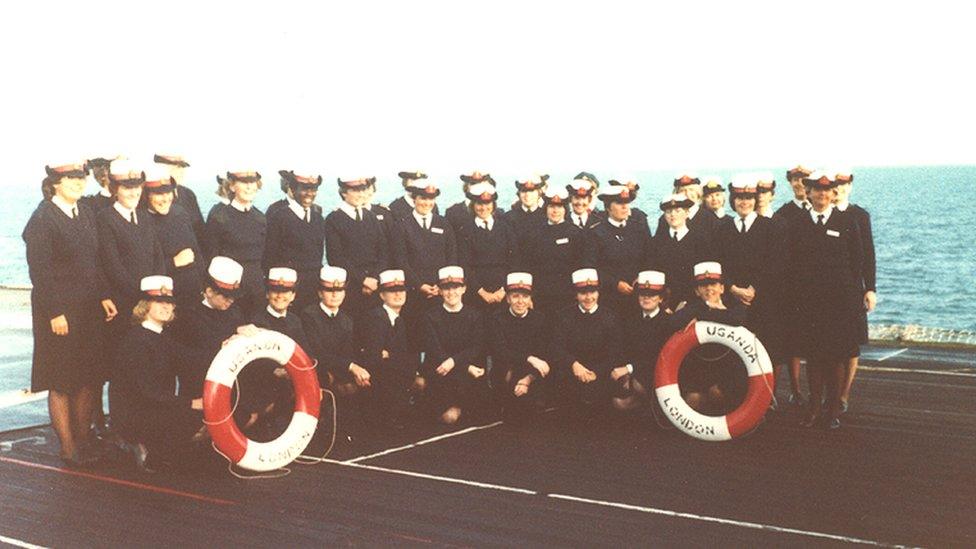
The women working on board the ship, which was transformed into a full working hospital, on the journey from Gibraltar to the South Atlantic
Despite treating hundreds of soldiers, the operating theatre sister remembers treating the young paratrooper during the final days of the war.
"It would be unusual to remember an individual, but I can put my hand up and say I do remember Denzil because, clinically, he was extremely badly injured," she said, adding he was taken into theatre "more than half a dozen times".
Treatment saved his life and one of his legs, and Mr Connick said Ms Pugh and the other nurses helped him deal with the trauma.
"One minute you're fit, healthy young man, the next minute you're a cripple," he said.
"The nursing staff were on the front line of that at the most difficult time, when the realisation dawns on you that your life is now going to be changed forever."
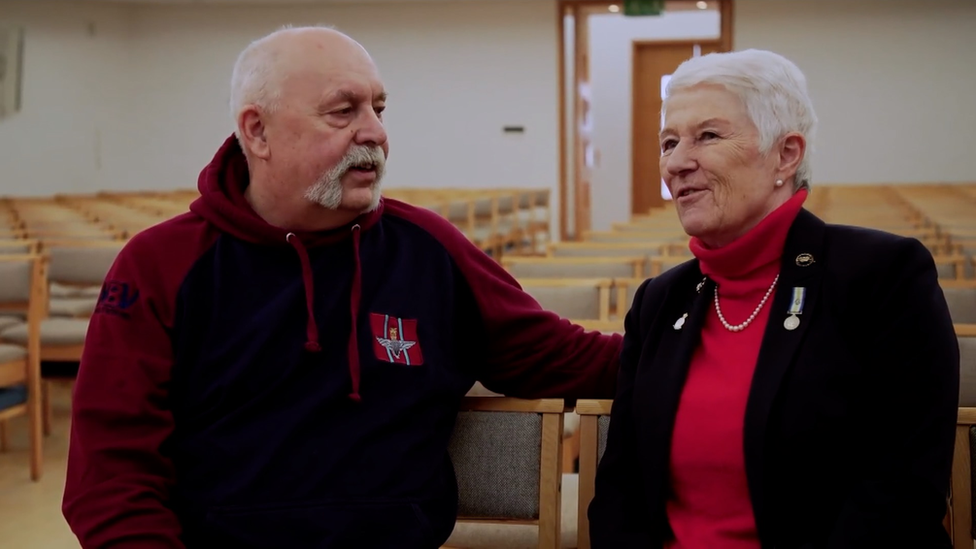
The pair embraced as old friends when they met for a 40-year reunion
At the chapel, at Pangbourne college, the pair spoke of a "shared bond" between those who have been involved with armed conflict.
"She [Ms Pugh] is like a mother hen for us veterans and she likes to see how our welfare is and that we're looking after ourselves," Mr Connick said.
The two are proud of their contribution in the South Atlantic and are actively involved with veterans' associations.
As the conflict continues in Ukraine, Ms Pugh said that the reunion was even more poignant, and reflected on the "pointlessness" of wars.
"Many people say that all wars are different... of course, they are - in location, in terrain, in objective, they are all different. But at the heart of it, they're all the same," she said.
"And that's why Denzil and I have made this effort to travel to this unique and very special memorial here, to reflect.
"Because, at the end of the day, all wars are the same. And the legacy of all war is a senseless and pointless destruction of cities, buildings, towns and lives."

WILD MOUNTAINS OF SNOWDONIA: Five farming families open their gates and share their lives
LAST CHANCE TO SAVE: Will Millard explores some of Wales’s hidden historic buildings

- Published6 April 2022
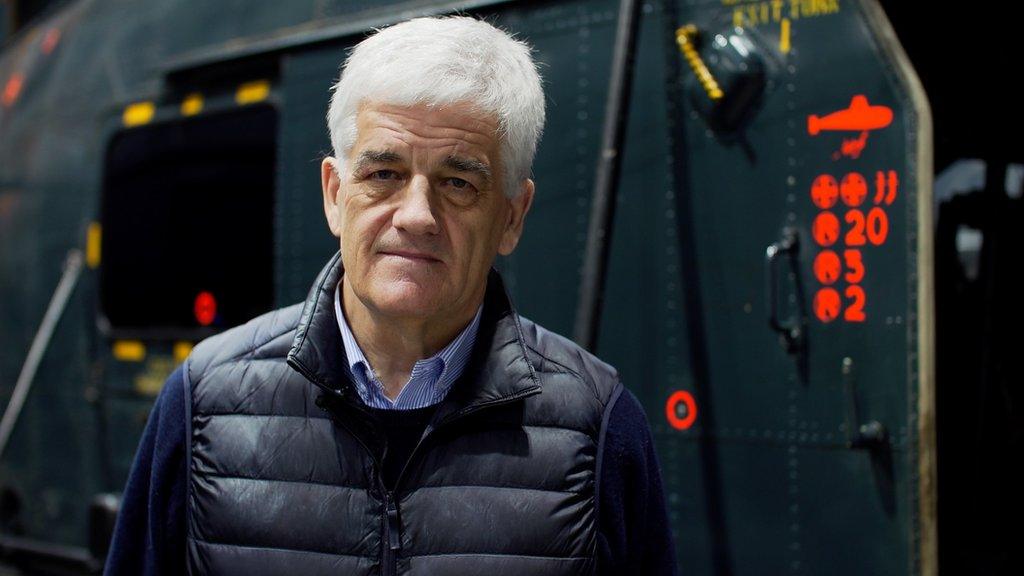
- Published4 April 2022
